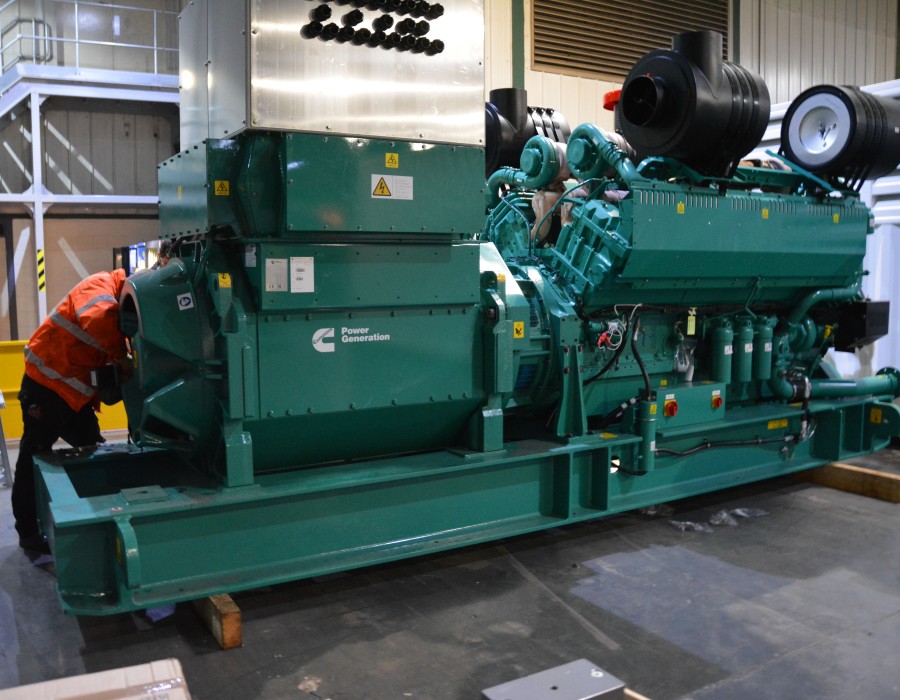In an era where energy efficiency and sustainability are at the forefront of global innovation, diesel generators are not being left behind. With advancements in technology, these workhorses have become more reliable, efficient, and environmentally friendly. Today, we explore the latest innovations in diesel generator technology that are reshaping the way industries, businesses, and homes ensure uninterrupted power supply.
Smarter Control Systems for Improved Efficiency
One of the most significant innovations in diesel generator technology is the incorporation of smart control systems. These advanced systems use real-time data to monitor and adjust the generator’s performance automatically. The integration of Internet of Things (IoT) technology allows generators to communicate with other devices, providing operators with insights into fuel consumption, load management, and predictive maintenance.
By utilizing these smart control systems, users can significantly reduce operational costs and extend the lifespan of the generator. IoT-enabled diesel generators can also predict potential issues, such as overheating or fuel leaks, allowing for timely interventions before a breakdown occurs. This not only ensures higher reliability but also minimizes downtime.
Note :- If you're in the market for cutting-edge power solutions, look no further than the diesel generator manufacturers in UAE like FG Wilson AE. Discover how their innovative technologies can provide reliable, efficient, and eco-friendly energy for your business. Reach out today to explore the best options for your industrial or commercial needs!
Hybrid Generators: The Power of Two Technologies
The rise of hybrid diesel generators is another key development. These generators combine traditional diesel engines with renewable energy sources, such as solar or wind power, to create a more sustainable energy solution. By switching between the diesel engine and renewable energy, hybrid generators optimize fuel consumption, reduce carbon emissions, and offer a more eco-friendly alternative.
Hybrid systems are particularly beneficial in remote locations or industries where power demands fluctuate. For instance, during peak sunlight hours, the solar component of a hybrid generator can take over, reducing the load on the diesel engine. When renewable energy is insufficient, the diesel engine kicks in to ensure continuous power supply.
This innovation has allowed industries to balance their need for reliable power with environmental responsibility, making hybrid generators a popular choice for businesses looking to reduce their carbon footprint.
Enhanced Fuel Efficiency and Emissions Control
Fuel efficiency has always been a major focus in diesel generator technology. Recent innovations have led to the development of generators that consume less fuel while delivering the same, if not more, power output. Advanced fuel injection systems and improved engine designs have contributed to this efficiency, making modern diesel generators more cost-effective to run.
Furthermore, with stricter emissions regulations being enforced globally, diesel generator manufacturers have made strides in reducing the environmental impact of their products. Technologies like selective catalytic reduction (SCR) and diesel particulate filters (DPF) are now being integrated into generators to minimize the release of harmful pollutants. This ensures that the latest diesel generator technology complies with international emissions standards, making them a cleaner option for power generation.
Noise Reduction Innovations
Noise pollution is a common issue with diesel generators, especially in residential areas or noise-sensitive environments such as hospitals or schools. However, recent advancements have
focused on reducing noise levels without compromising performance.
Soundproofing enclosures, vibration dampeners, and muffler technology have been introduced to mitigate the noise produced by diesel generators. Some generators now operate at noise levels as low as 60 decibels, making them suitable for use in areas where noise control is a priority.
This focus on noise reduction has opened new markets for diesel generators, enabling their use in urban and suburban settings where they were previously avoided due to high noise levels.
Autonomous Operation and Remote Monitoring
With the advancement of automation and connectivity, diesel generators can now operate autonomously, requiring minimal human intervention. Remote monitoring systems allow users to track generator performance from any location, reducing the need for on-site personnel.
These systems provide real-time data on fuel levels, engine performance, and potential issues. In the event of a malfunction, operators can receive instant alerts, enabling them to address the problem remotely or dispatch a technician if needed. This level of automation increases efficiency, reduces labor costs, and ensures that generators can be relied upon in critical situations without constant oversight.
Modular and Scalable Designs
Another exciting development in diesel generator technology is the rise of modular designs. This innovation allows multiple generators to be connected in parallel, providing scalable power solutions that can grow with the needs of a business or operation.
For example, a small business may start with one generator but can easily add more units as their power demands increase. This flexibility allows for greater control over power supply, making it easier to manage costs and scale operations as needed.
Conclusion
The latest innovations in diesel generator technology have brought about remarkable improvements in efficiency, sustainability, and reliability. From smart control systems to hybrid generators and noise reduction solutions, these advancements are helping businesses meet their energy needs while reducing operational costs and environmental impact. As technology continues to evolve, we can expect even more exciting developments in this field, further solidifying diesel generators as an essential part of modern power solutions.





Comments